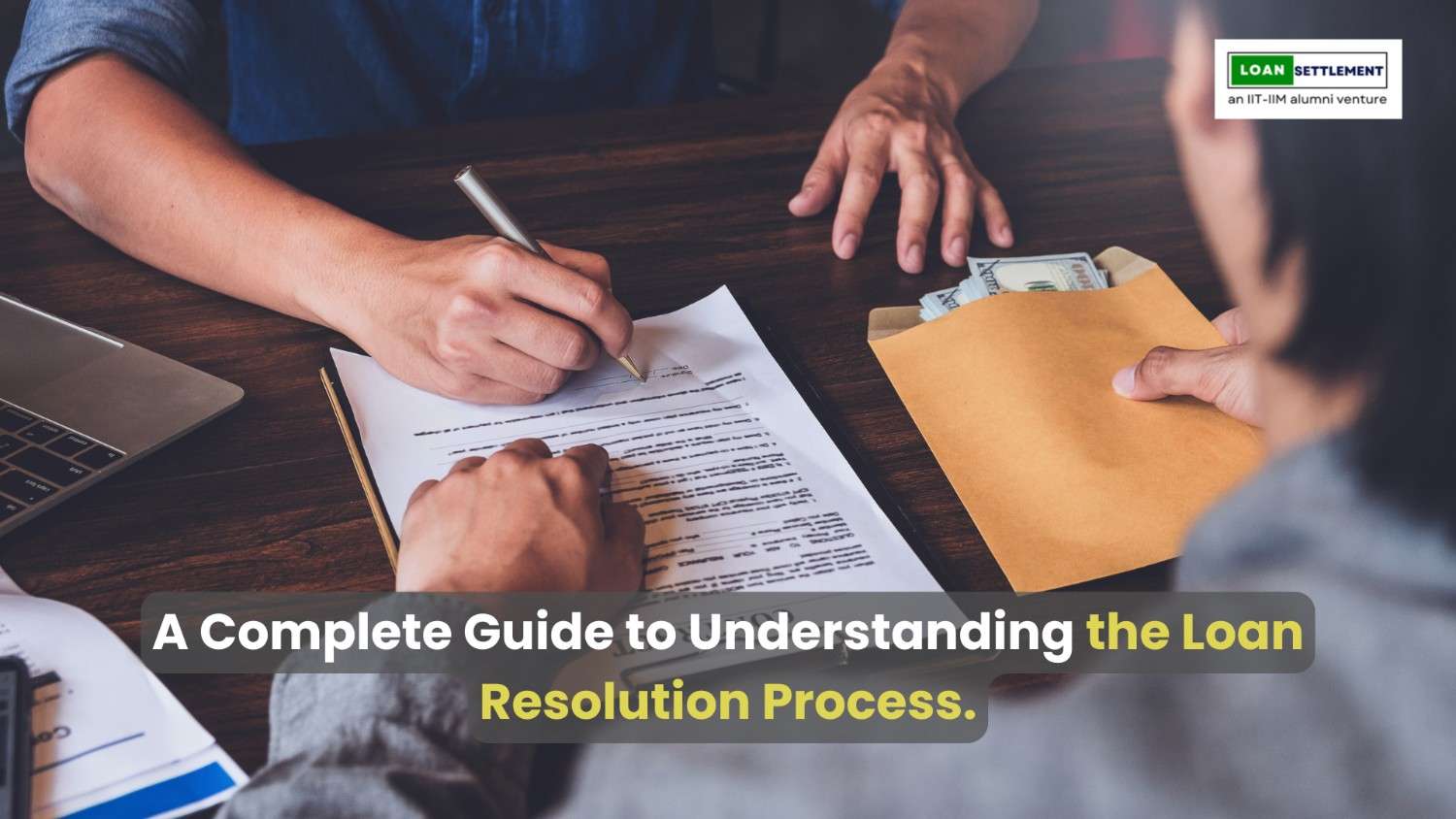· Loan Resolution · 3 min read
How Loan Resolution Can Help You Overcome Financial Challenges
Financial challenges, like unmanageable loans, can feel overwhelming and stressful. But there’s hope—loan resolution offers a lifeline. In this article, we explore how loan resolution works and how it can help you overcome financial difficulties, regain stability, and take control of your finances.

Let’s face it: financial challenges can be overwhelming. Whether it’s mounting debts, unexpected expenses, or reduced income, the stress can take a toll on your life. One major contributor to financial struggles? Unmanageable loans. But there’s good news—loan resolution can provide a lifeline.
In this article, we’ll dive into how loan resolution works and how it can help you navigate tough financial waters.
What is Loan Resolution?
Definition and Overview
Loan resolution is a structured approach to addressing financial difficulties related to loans. It involves negotiating terms, consolidating debts, or even forgiving parts of the loan to make repayment manageable.
Types of Loan Resolutions
Loan Modification: Adjusting terms like interest rates or payment periods.
Debt Consolidation: Combining multiple debts into a single loan with better terms.
Settlement and Forgiveness: Agreeing to pay a reduced amount as full repayment.
Common Financial Challenges Loan Resolution Addresses
Mounting Debt and Interest Rates
Unpaid debts can snowball with high interest rates. Loan resolution helps lower payments or consolidate debts to reduce pressure.
Job Loss or Reduced Income
When income drops, paying off loans becomes harder. Resolution options like loan deferment can provide temporary relief.
Medical Emergencies
Medical bills can drain finances fast. Loan settlement can help reduce these burdens.
Economic Downturns
Economic instability can make existing loans unmanageable. Resolution strategies can provide a safety net.
Benefits of Loan Resolution
Improving Financial Stability
By restructuring loans, you can regain control of your finances.
Reducing Stress and Anxiety
Knowing there’s a plan to tackle debt eases mental strain.
Avoiding Bankruptcy
Loan resolution offers alternatives to filing for bankruptcy, preserving your financial future.
Preserving Credit Scores
Some resolution methods can mitigate the impact on your credit score, unlike defaulting on loans.
Loan Resolution Strategies
Understanding Your Loan Terms
Start by knowing what you owe and the terms involved.
Communicating with Lenders
Open dialogue with lenders can lead to mutually beneficial solutions.
Exploring Loan Modification Programs
Programs tailored to help borrowers in financial distress can ease repayment.
Seeking Professional Help
Credit counselors and debt relief specialists bring expertise to the table.
How to Start the Loan Resolution Process
Evaluate Your Financial Situation
Assess income, expenses, and debts to understand your financial health.
Prepare Necessary Documentation
Gather financial records like pay stubs and loan agreements.
Negotiate with Lenders
Present your case to lenders for restructuring options.
Mistakes to Avoid in Loan Resolution
Ignoring Financial Warnings
Procrastination can worsen your situation.
Failing to Read Loan Terms
Always review terms carefully before signing anything.
Taking Unsuitable Offers
Ensure the resolution aligns with your financial goals.
How Professional Services Can Assist
Credit Counselors
They guide you on budgeting and managing debt.
Debt Relief Specialists
Experts who negotiate with lenders on your behalf.
Real-Life Examples of Loan Resolution Success
Case Study: Overcoming Credit Card Debt
A borrower consolidated credit card debt, cutting monthly payments by 40%.
Case Study: Managing a Mortgage Crisis
A family secured a loan modification, saving their home from foreclosure.
Conclusion
Financial challenges can feel like a storm, but loan resolution offers a way out. By addressing issues early and seeking professional help, you can regain control of your finances and start afresh.
FAQs
1. What is the difference between loan modification and debt consolidation?
Loan modification adjusts the terms of an existing loan, while debt consolidation combines multiple loans into one.
2. How long does the loan resolution process typically take?
It depends on the complexity of your situation but generally ranges from weeks to months.
3. Will loan resolution impact my credit score?
Some methods, like settlement, may lower your score, but restructuring or consolidation can have a neutral or positive effect.
4. Can I negotiate loan terms without professional help?
Yes, but professional services can improve outcomes due to their expertise.
5. What should I do if my lender refuses to cooperate?
Seek legal advice or consult a credit counselor for alternative solutions.



